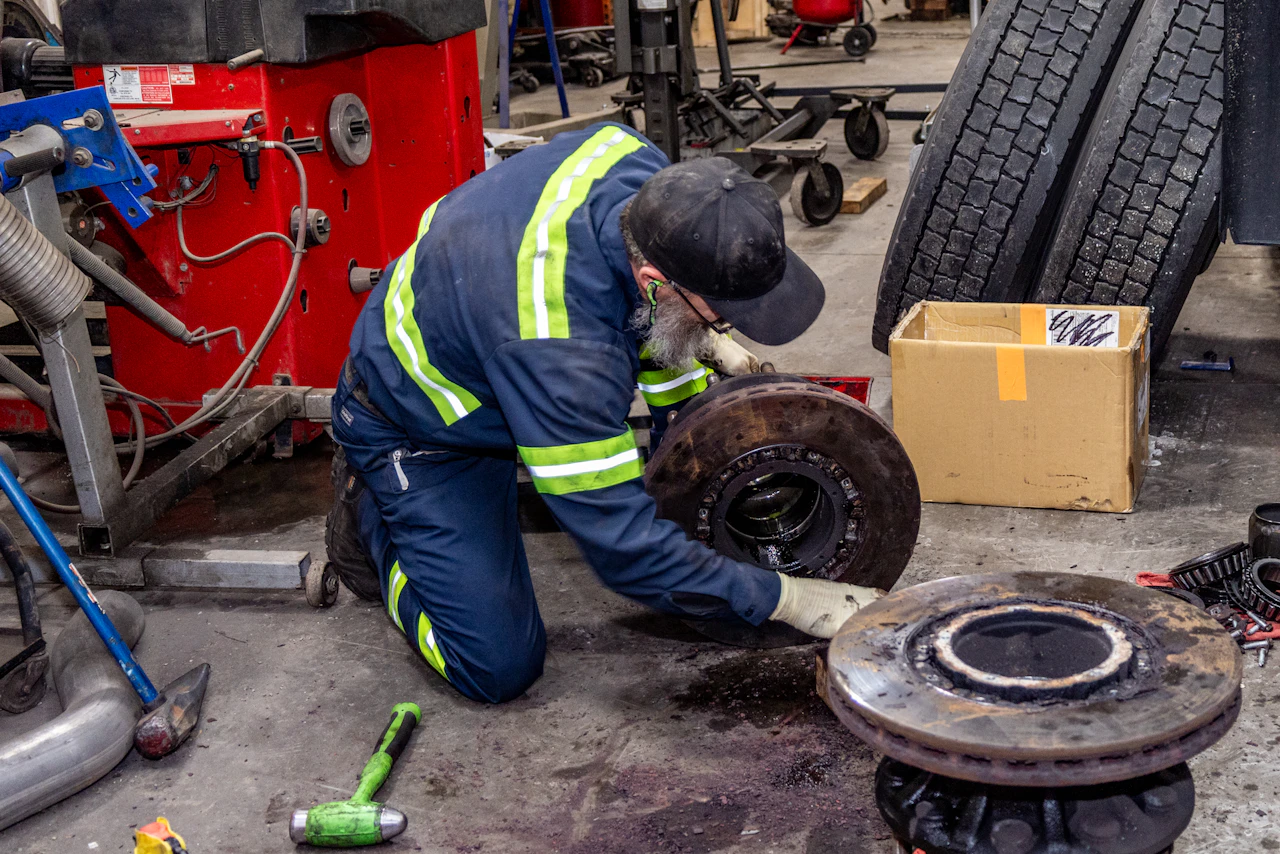A malfunctioning liftgate can grind operations to a halt, especially when loading or unloading time-sensitive cargo. Liftgates, whether hydraulic or electric, are essential for seamless freight handling, so knowing how to diagnose and resolve issues is crucial. By understanding the common causes of liftgate malfunctions and following a systematic troubleshooting process, you can save time and money while ensuring the safety of your operations.
Understanding Common Liftgate Problems
Liftgate malfunctions typically stem from three primary sources: electrical failures, hydraulic issues, and mechanical wear and tear. Each area plays a vital role in liftgate functionality, and problems in one system can affect the others. Let’s delve deeper into these issues to understand their symptoms and root causes.
Electrical Failures
Electricity powers many liftgate functions, from raising and lowering the platform to activating control switches. A common electrical problem is a dead battery, which can halt operations entirely. Liftgates often draw power directly from the truck's battery, meaning a weak or depleted battery won’t supply enough energy. Loose connections, corroded terminals, or damaged wiring can also disrupt the flow of electricity, leading to intermittent or complete failure. A blown fuse can also break the circuit, rendering the liftgate inoperable.
Hydraulic Issues
Hydraulic systems provide the force needed to lift heavy loads. Low or degraded hydraulic fluid is a frequent culprit behind sluggish or unresponsive liftgate operation. Over time, hydraulic hoses can develop cracks, leading to fluid leaks that reduce pressure and efficiency. In some cases, the hydraulic pump itself may malfunction, causing the entire system to lose its ability to generate the force required to operate the liftgate smoothly.
Mechanical Wear and Tear
Even with functional electrical and hydraulic systems, mechanical problems can prevent your liftgate from operating effectively. Worn pins and hinges can cause misalignment, making it difficult for the liftgate to open or close correctly. The platform itself may sustain damage from years of heavy use, especially if it's exposed to harsh conditions or improper loading techniques. Dirt, debris, or ice can also obstruct moving parts, causing grinding noises or jerky movements.
Step-by-Step Troubleshooting Process
Step 1 - Assess the Power Supply
Start by ensuring the truck’s battery is fully charged and capable of delivering sufficient power. Use a multimeter to test the voltage; a healthy battery typically reads around 12.6 volts when fully charged. Clean any corrosion from the battery terminals and tighten loose connections. Next, inspect the liftgate's wiring harness for fraying, exposed wires, or loose connectors. Finally, locate the fuse box and replace any blown fuses. These simple checks often resolve minor electrical issues.
Step 2 - Inspect the Hydraulic System
If the electrical system is functioning properly, shift your focus to the hydraulics. Begin by examining the hydraulic fluid reservoir. Low fluid levels or discoloured, contaminated fluid can hinder performance. Top off the fluid using the manufacturer-recommended type, and replace old fluid if necessary. Check for leaks along the hydraulic lines by looking for wet spots or puddles near the hoses. If the liftgate still struggles to operate, the hydraulic pump may need professional testing or replacement.
Step 3 - Evaluate Mechanical Components
Liftgate alignment is critical for smooth operation. Check the hinges, pins, and mounting brackets for signs of wear or damage, such as excessive play or visible rust. Lubricate these components regularly to reduce friction and prolong their lifespan. Examine the platform for bending, warping, or other damage that could obstruct movement. If the liftgate appears misaligned, adjust or replace the necessary components to restore balance and stability.
Step 4 - Test the Control Mechanism
The control panel is the operator's interface with the liftgate. Press each button or toggle switch to ensure responsiveness. If the controls feel sticky or fail to activate the liftgate, the issue could lie in the wiring or the control unit itself. Replacing a faulty control switch is often a straightforward fix. For wireless remote systems, check the batteries in the remote and verify that the receiver unit is functioning correctly.
Proactive Maintenance to Prevent Liftgate Failures
Prevention is the best cure when it comes to liftgate reliability. Regularly inspect the electrical connections, looking for corrosion or fraying that could lead to intermittent power issues. Clean and lubricate all moving parts, such as hinges, pins, and the platform itself, to minimize wear. Periodically check hydraulic fluid levels and inspect hoses for signs of deterioration. Keeping your liftgate clean is equally important, as dirt and debris can block moving parts and accelerate wear. By addressing these small issues before they escalate, you can significantly extend the life of your liftgate.
When to Seek Professional Help
While many liftgate issues can be resolved with basic troubleshooting, some problems require the expertise of a trained technician. Persistent electrical issues, such as recurring blown fuses or complete power failure, may indicate deeper wiring problems. Similarly, significant hydraulic leaks or pump malfunctions often demand specialized tools and knowledge to repair safely. Mechanical damage, such as a severely bent platform or broken mounting brackets, can compromise the structural integrity of the liftgate and should be handled by a professional.
Conclusion
Troubleshooting a malfunctioning liftgate doesn’t have to be a daunting task. By systematically addressing electrical, hydraulic, and mechanical components, you can identify the root cause of most issues and take the appropriate corrective actions. Regular maintenance is key to preventing problems in the first place, ensuring that your liftgate operates reliably and safely for years to come. If the problem persists despite your best efforts, don’t hesitate to call a professional technician to get your liftgate back in working order.

